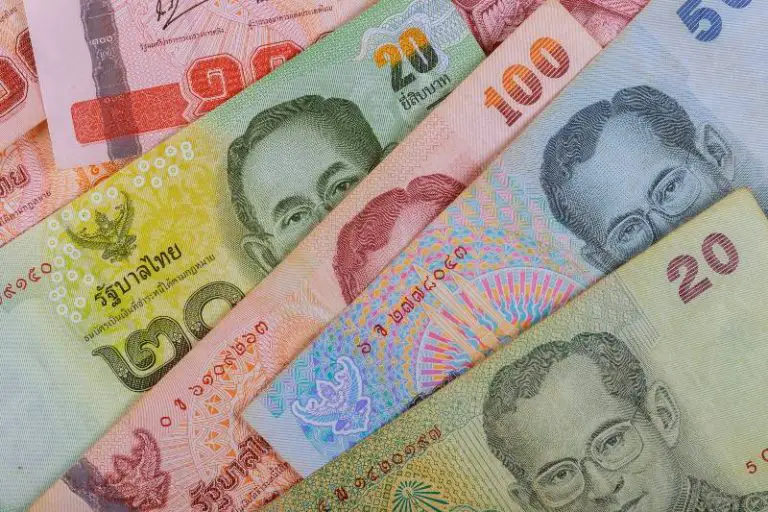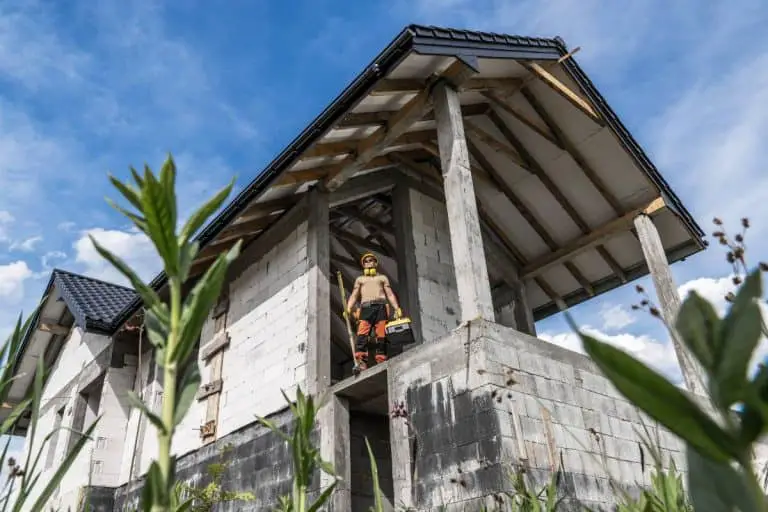The Cost of Living in Thailand: What You Need to Know
Exploring Thailand can be an amazing adventure! From its picture-perfect white sand beaches, and lively cities full of entertainment and culture, to some of the world’s most impressive temples – there is something for everyone. Not only that but with a low cost of living, it comes as no surprise why many visitors choose this paradise country to vacation in or even live in permanently.
Thailand is a captivating country of contrasts, from the vibrant urban energy of Bangkok and Chiang Mai to peaceful island beaches in Phuket and Koh Samui. Explore its deep cultural heritage at iconic temples like Wat Arun or Wat Phra Kaew for an unforgettable vacation experience.
Thailand’s unique culture and beautiful environment create an ideal atmosphere for ex-pats. From digital nomads to entrepreneurs, the country welcomes everyone with its friendly locals, breezy climate–and low cost of living that can’t be beaten! And if you’re looking for some collaboration or innovation inspiration? Look no further than the vibrant coworking hubs and startup communities here.
Learn how to live like a local in Thailand! We’re bringing you an exciting guide on the cost of living, from accommodation and food prices to savvy tips for cutting expenses. Plus – learn how Travelers can save money while exploring this beautiful destination.
Want to save some cash? Consider Thailand—it has an average cost of living 44.6% lower than the US, and rents can be a whopping 71.5% less.
Key Takeaways
- Thailand offers the perfect mix of excitement and serenity – explore busy cities alive with energy, or relax on tranquil beaches. With welcoming locals and an affordable lifestyle, it’s no surprise that many ex-pats call this beautiful country home!
- Enjoy a more economical lifestyle in some areas of the world! On average, rent is almost three-quarters cheaper than it is stateside––giving you more opportunity to explore without breaking your budget.
- Thailand is a fantastic country full of captivating experiences, but you don’t need to be rich in order to enjoy it! Our guide can help make your dream trip come true – with just the right amount of planning and savvy savings tips from Travelers, exploring this exciting destination has never been easier.
Accommodation Costs
Thailand offers a variety of accommodation options for ex-pats and tourists, including apartments, condos, houses, and guesthouses.
Apartments and condos are the most common types of accommodation in urban areas like Bangkok and Chiang Mai. They typically range in size from studios to three-bedroom units, and many offer amenities like swimming pools and gyms. Houses are more common in suburban or rural areas and are often rented unfurnished.
The cost of accommodation in Thailand varies depending on the location and type of property. Here are some average rental prices in different areas of Thailand:
- Bangkok: Bangkok is one of the most vibrant and dynamic cities in Southeast Asia. It is a city that never sleeps, with its bustling streets, delicious food, and friendly people. However, with such a fast-paced environment, finding an affordable apartment or condo can be challenging. In the city center, the cost of a one-bedroom apartment or condo ranges from 40,000 to 28000THB (822.27 USD) per month, depending on the location and amenities. Many people opt to live in the suburbs as rent is generally cheaper, allowing them to save money while still being close enough to experience all that this incredible city has to offer.
- Chiang Mai: Chiang Mai, located in the northernmost part of Thailand, is one of the most sought-after destinations for both tourists and ex-pats. Known for its rich cultural heritage, night markets, and street food, the city offers a vibrant and exciting lifestyle. Renting a one-bedroom apartment or condo in the city center could cost anywhere from 8,000 to 25,000 THB per month, depending on the area and amenities provided.
For a family of four, the estimated monthly costs sans rent are 1,807.00 USD (61,784.6 THB), while those same expenses for one individual come out to be 509.40 USD (17,416.80 THB).
- Phuket: 7150.29 to 21110.38 THB ($210 to $620 USD) per month for a one-bedroom apartment or condo in the city center. Rent is generally cheaper in the suburbs.
- Pattaya: 18,875 to 30,000 THB (1,944.5 USD) per month for a one-bedroom apartment or condo in the city center.
Before relocating or taking a vacation to Thailand, it is wise to consider costs beyond just the rental fee. Here are some typical utility expenses you may want to budget for.
- Water: 30 to 100 THB (4 to 12 USD) per cubic meter
- Electricity: 3 to 7 THB (from 0.21 USD) per kilowatt-hour
- Internet: 500 to 1,500 THB (from 15 to 44 USD) per month for a high-speed connection
It is essential to be aware that some apartments and condos might include utilities such as water and internet in their rental fee, while others may ask for the tenants to pay them monthly expenses separately. Likewise, electricity bills are normally not included in a rent agreement and have to be paid on time every month.
Food Costs
Thai food has captured the hearts and taste buds of people all around the world. This cuisine is well-known for its unparalleled flavors and fragrances that tantalize the senses.
The diversity of Thai food is impressive, with dishes ranging from spicy curries and noodle soups to fresh salads and stir-fries. But when it comes to the cost of enjoying a Thai meal, it can vary widely depending on where you eat and what you order.
A typical meal of local food can cost from a few dollars to $40 or more, with fancier restaurants charging higher prices for more refined dishes. So whether you’re on a budget or ready to indulge in a gourmet feast, there’s a Thai food option that’s just right for you.
Average prices of common Thai dishes in local restaurants
Thailand is one of the most affordable countries in the world when it comes to food. With one meal costing around 50-100 Baht, equivalent to $1.50 – $3.00 USD, you can enjoy a delicious meal without breaking the bank.
Whether you are looking for traditionally Thai dishes like Pad Thai or something more of Western food like a burger, the price range is quite reasonable. Moreover, the quality of food is always high, ensuring that you will get a great meal for a good price. If you’re planning to visit Thailand, make sure to indulge in the local cuisine – you won’t be disappointed!
Supermarket prices for groceries and household items
When visiting supermarkets in Thailand, the prices of groceries and household items can vary greatly depending on the product’s location, brand, and quality. However, it’s always helpful to have an idea of what to expect in terms of prices.
- A 1kg bag of rice can range from 20 to 50 THB (from 0.59 USD)
- A dozen eggs typically cost between 50 to 60 THB. (from 2 to 4 USD)
- Chicken breast can cost around 100 to 150 THB per kg
- Ground pork ranges from 80 to 120 THB. (from 3 USD)
- Fresh vegetables are usually priced around 20 to 60 THB per kg (from 0.59 USD)
- Fresh fruits can range from 20 to 100 THB per kg. (from 1-2USD)
- A loaf of bread costs anywhere from 20 to 50 THB, and a liter of milk ranges from 30 to 60 THB. (from 1 to 4 USD)
- A 1.5-liter bottle of water is typically priced at around 10 to 20 THB (from.50 to 1 USD)
- A pack of four rolls of toilet paper can range from 30 to 50 THB. (2 to 4 USD)
- Laundry detergent is priced around 40 to 80 THB (3 to 6 USD) for a 1L bottle, and dishwashing liquid typically costs between 30 to 50 THB (2 to 5 USD)
Eating out vs cooking at home
Eating out in Thailand is an experience to savor. You can’t beat the delicious street food that’s available on almost every corner of the tantalizing aromas that emanate from the bustling night markets. You can try new dishes and unusual flavor combinations that you might not find at home, and at a fraction of the cost of a fancy restaurant meal.
However, cooking at home in Thailand can also be an enjoyable and rewarding experience. You get to shop for fresh ingredients at the local market and learn to cook traditional Thai dishes from scratch. Plus, you can control the flavor and spiciness of the food to suit your own tastes. Whether you choose to eat out or cook at home, one thing is for sure – your taste buds will be in for a treat when it comes to Thai cuisine.
Transportation Costs
Public transportation options
Transportation costs in different countries and cities can vary depending on various factors, such as the mode of transportation, distance traveled, time of day, and location. However, here are some estimates of transportation costs in Thailand:
- Taxis: Metered taxis are widely available in Thailand, especially in major cities. The starting fare is usually around 35-50 THB, and the cost per kilometer ranges from 6-14 THB. A typical taxi ride from Bangkok’s Suvarnabhumi Airport to the city center may cost around 300-500 THB (from 8.80 USD), depending on traffic and time of day.
- Tuk-tuks: Tuk-tuks are three-wheeled vehicles that are a popular mode of transportation in Thailand. Tuk-tuk drivers do not use meters, so it’s important to agree on a price before getting in. A short ride in a tuk-tuk may cost around 50-100 THB (from 4 USD), while longer rides may cost up to 300 THB or more.
- Motorbikes: Motorbikes are a convenient and affordable way to get around Thailand, especially in rural areas. Renting a motorbike may cost around 150-300 THB per day, depending on the type of bike and location.
- Buses: Public buses are available in most Thai cities, and the fares are usually very affordable. A typical bus ride in Bangkok may cost around 8-15 THB (from 1 USD), depending on the distance and route.
- Trains: Thailand also has an extensive railway network, with trains connecting major cities and tourist destinations. Train fares are generally affordable, with a one-way ticket from Bangkok to Chiang Mai, for example, costing around 700-1,000 THB (from 20.53 USD), depending on the class and type of train.
Please note that these prices are only estimates and may vary depending on the location, time of day, and other factors. It’s always a good idea to confirm the fare or price before using any mode of transportation in Thailand.
Average prices of fares
Tuk-tuks and taxis are a ubiquitous sight in Thailand, making getting around a breeze. However, not all modes of transportation are created equal when it comes to price. While regular taxis offer affordable rates starting from THB 30 (from 1 USD), it’s important to make sure the meter is being used to avoid being overcharged.
In contrast, tuk-tuks and taxis often add a novelty factor that can lead to slightly inflated prices. For those on a tight budget, motorcycle taxis are a great option for short distances, with rates usually ranging between THB 50 – THB 150 (from 2-5 USD). Regardless of your choice, exploring bustling Bangkok is conveniently achievable with the right transportation options.
Owning a car vs using public transportation
In Thailand, deciding between owning a car and using public transportation can be a tough call. If you’re based in a heavily urbanized area like Bangkok, where there are plenty of public transit options available, you might not need to own a vehicle.
However, if you’re residing in a more remote location or need to commute long distances on a daily basis, then having your own car may be a better bet. It’s important to weigh up all the pros and cons of each option and consider your unique requirements before making a final decision. Ultimately, the goal is to choose a mode of transportation that’s both convenient and cost-effective for you.
Healthcare Costs
Overview of the healthcare system in Thailand
When it comes to healthcare, Thailand is a country that takes it seriously. With nearly 100% of the population having health protection coverage, their healthcare system is truly impressive. The Ministry of Public Health (MOPH) is the main overseer of the national health policy and runs the majority of the government’s healthcare facilities. In addition to this, the National Health Security Office (NHSO) ensures funding for the universal coverage program.
With such a comprehensive approach, Thailand’s healthcare system has become a model for many developing countries around the world. Access to quality healthcare is a fundamental right, and it’s great to see that this is being provided for in Thailand.
Private vs Public healthcare options
Thailand’s healthcare system is a mix of both public and private options. The Ministry of Public Health oversees the public hospitals, which provide universal healthcare to all Thai nationals through government schemes. Private hospitals are also prevalent in the country and are especially popular in large urban areas. With Thailand’s reputation as a medical tourism destination, its private healthcare facilities have also become world-renowned. However, healthcare accessibility in rural areas still needs a lot of improvement to match that of the cities.
Private healthcare
Thailand offers both private and public healthcare options, and while the latter may be more affordable, the former is renowned for its exceptional quality. Despite the higher cost, private hospitals in Thailand boast well-trained medical teams and modern equipment, making them a favored choice for ex-pats and medical tourists alike. And with a lower price tag than comparable services in the West, it’s no wonder Thailand’s private healthcare sector is thriving.
For those seeking care with minimal wait times and English-speaking staff, private hospitals offer a wider range of options to choose from, making them the preferred choice for many. While insurance coverage may be a factor in accessing private care, patients in need can still find excellent medical care in Thailand’s public hospitals as well.
Public healthcare
Thailand’s Universal Coverage Scheme (UCS) is a national health insurance system that ensures free public healthcare for all. Even ex-pats working in the country are covered by this scheme, and their contribution is automatically deducted from their salary. However, while the scheme aims to provide excellent healthcare, it faces some challenges. Waiting times for treatment can be long and outdated medical equipment may be a concern in some public hospitals. Another drawback is that patients can only avail of care in specific hospitals assigned to them.
Cost of medical treatments, consultations, and insurance
Living in Thailand as an ex-pat comes with its own set of challenges, and one of the most important ones is healthcare. The prices for medical treatment can vary wildly depending on the care you need and where you are located. For those living in remote areas, being transported to high-quality hospitals in Bangkok might result in medical evacuation fees of around $11,000. Even a routine checkup at a private hospital can cost around $95 while staying overnight or requiring treatment in the ICU can easily set you back a few thousand dollars per day.
Getting sick or injured is never fun, but it’s even worse when you have to worry about the cost of medical treatment. In Thailand, the cost of medical care can vary greatly depending on your ailment. For example, if you have a bacterial infection in your gastrointestinal tract, treatment might cost you around 4,700 baht or $150.
However, if you contract dengue fever, a debilitating and potentially deadly disease, treatment could set you back up to 80,000 baht or $2,500. And if you’re involved in a motorcycle accident, the costs can be truly staggering – up to two million baht or $63,000. So, while you hope you never have to visit a Thai hospital, it’s important to know the potential cost of treatment in advance.
Entertainment and Leisure Costs
Prices of movie tickets, gym memberships, and other leisure activities
Movie tickets in Thailand typically cost between ฿100-฿300 depending on the theater and location. Some theaters may also offer discounts for certain days or times.
Gym memberships can also vary in price depending on the gym and location, but average monthly rent and fees can range from ฿1,000-฿3,000. (29.37 to 88.10 USD) Some gyms may also offer promotions or discounts for longer-term memberships.
Traveling around Thailand doesn’t have to break the bank – with domestic flights from ฿1,000-2,000 (30-60 USD) and well as budget train rides from ฿200-500 (5 to 8USD), getting around this beautiful country is more affordable than ever.
Cost of traveling within Thailand
- Domestic flights: Thailand is a favorite destination for many travelers worldwide, offering beautiful beaches, delicious food, and rich culture. When it comes to traveling within the country, it is crucial to plan on transportation costs to avoid any budget strains. Domestic flights, in particular, can be affordable in Thailand, with tickets starting at around ฿1,000-฿2,000. (30 to 60 USD) With the budget airlines like AirAsia and Nok Air, getting around the country can be done on a budget, leaving you with more cash to enjoy your travels fully.
- Trains: Traveling within Thailand can be a budget-friendly adventure, especially when considering train travel. With a myriad of options available, it’s important to note that the type and class of train you choose will affect your price point. For those seeking a comfortable experience, a first-class sleeper train is an option with fares ranging from ฿1,500-฿2,500. (35 to 65 USD)However, if you’re able to forgo some luxuries in exchange for a cheaper ride, the second-class sleeper train offers affordable prices at around ฿800-฿1,200. (24 to 35 USD)
- Buses: If you’re on a budget and looking to travel within Thailand, buses are your best bet. Not only is it the cheapest option, with long-distance fares starting at around ฿200-฿500 (5 to 14 USD), but some bus companies even offer added comforts like air-conditioning and reclining seats for a slightly higher price. Bus travel is a great way to take in the sights and sounds of Thailand while keeping your wallet happy.
- Taxis and tuk-tuks: Exploring Thailand is truly an adventure worth the time and effort. However, the cost of traveling within the country can be a significant factor to consider. While taxis and tuk-tuks are popular modes of transportation, the prices can vary depending on the location and your negotiation skills. Tuk-tuks may be cheaper, but they may not be the most comfortable option. On the other hand, taxis provide a more comfortable ride, but the fares may be higher. With that said, it’s essential to figure out a budget and plan your travels accordingly.
Miscellaneous Costs
Education costs for ex-pats with children
Moving to another country can be an exciting adventure, but it’s important to consider the costs that come with it. Families with children who are ex-pats in Thailand have to add the cost of education to their budget. The tuition fees for primary and secondary international schools in Thailand vary greatly, with the range for primary schools being THB 67,000 to THB 805,700 (1,500 to 2400 USD), and the range for secondary schools being THB 8,100 to THB 904,000. The average cost for both is about THB 320,000 and THB 385,000 (9397.12 to 11305.91 USD), respectively.
Visa and work permit fees for long-term stay
If you’re planning a long-term stay in Thailand, don’t forget to factor in the cost of a work permit and visa fees. The Thai government requires foreign citizens to obtain a work permit if they want to work legally in the country. The fees for a Thai work permit vary depending on the duration of stay, with a cost of 750 to 3,000 Thai Baht (22.02 to 88.10 USD) (also you have to open a Thai bank account). Additionally, visa fees can add up to the total miscellaneous costs of your stay.
Before living in Thailand make sure to read this article, which includes 27 Things You Need to Know BEFORE Moving to Thailand so that you can make an informed decision.
The Cost of Living in Thailand FAQs
How much does healthcare cost in Thailand?
Taking care of one’s health should always be a top priority, and this includes regular checkups to ensure that everything is in order. However, the cost of healthcare can be a deterrent for some. In Thailand, an annual checkup at a private hospital might cost around 3,000 baht or $95, and while it may seem steep, it’s a small price to pay for peace of mind. If the need arises for an overnight stay, the cost increases significantly to at least 10,000 baht or $317 a day. And if intensive care is needed, the expenses could skyrocket to 100,000 baht or $3,127 a day.
What is the cost of transportation in Thailand?
Navigating Bangkok can be quite the experience, whether it’s by foot, train, or taxi. When it comes to the latter, it’s important to know what you’re getting into. Taxis charge a base fare of 35 Baht for the first 2 kilometers, but after that, fares increase based on distance, ranging from 4.50 to 5.50 Baht per kilometer. Keep in mind that if the taxi is traveling at less than 6 kilometers per hour, there will be a surcharge of 1.25 Baht. If you plan on taking a taxi for the whole day, it will come at a price of around 1,000 to 1,500 Baht (29.37 to 40 USD).
What is the average salary in Thailand?
Thailand has been making strides in improving its economic status in recent years, with the country experiencing a rise in average salaries.
In 2020, the average salary in Thailand was US$619, but this has since increased to THB 27,352 (US$877.64) per household as reported by the National Statistics Office (NSO). This places the country ahead of the Philippines in terms of overall average global wages, ranking 57th.
How much does it cost to travel to Thailand?
Thailand is an incredibly popular travel destination due to its stunning beaches, rich culture, and affordable prices. The cost of a 7-day trip to Thailand can vary greatly depending on the type of traveler you are. Solo travelers can expect to spend an average of $819, while couples will pay around $1,397 for their vacation.
Families of four can enjoy all that Thailand has to offer for an average of $936. When it comes to accommodations, travelers will find a wide range of options to suit any estimated monthly costs. Hotels in Thailand can cost anywhere from $23 to $131 per night, with an average of $40. For those looking for a more home-like experience, vacation rentals range from $60 to $440 per night for the entire property.
How much does education cost in Thailand?
Education in Thailand comes with a varying price tag, depending on the level and type of education. Generally, public schools provide free education up until the ninth grade. After that, students who want to pursue their studies need to pay tuition fees, school uniforms, textbooks, and transportation costs. Private schools, on the other hand, can offer more quality education but at a higher cost. For example, international schools charge around 400,000 to 1.2 million baht annually, while boarding schools can cost up to 2 million baht per year.
Conclusion
All in all, the cost of living in Thailand depends on the individual. Some may find that a moderate monthly budget can provide a good life here, while others may find it to be expensive for their tastes.
In comparison to other ex-pat destinations, and depending on lifestyle preferences, living in Thailand can be quite affordable. It’s important for potential newcomers to do research into what their own personal expenses could look like here and decide whether this is an appropriate place for them to set up their home abroad.
I hope this article provided some clarity into your understanding of the cost of living in Thailand as an ex-pat. If you feel as though you are interested in exploring more about housing costs and living in Thailand, be sure to check us out: we offer diverse blog posts about relocating and getting ready for such a journey!
Lastly, don’t forget to subscribe to our newsletter – it is full of great information about making the most out of your experience with Thailand as your new home!




